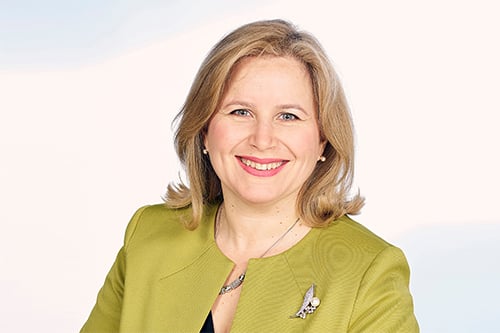

It was 11 months ago that the Chartered Insurance Institution (CII), with the support of the MGAA, launched a new Chartered title for managing general agents in the Old Library at Lloyd’s, one of the last in-person gatherings of 2020. Now the organisation has amended the criteria for obtaining the Chartered Insurance Underwriting Agent title for Lloyd’s coverholders, a move which reflects the alignment between the values that govern both, according to Melissa Collett (pictured) professional standards director for the CII.
To hold the new Chartered title, coverholders will need to meet the CII’s eligibility criteria - but for Lloyd’s coverholders, the required time to have been trading as an authorised and regulated business will be reduced to one year. In conversation with Insurance Business, Collett highlighted the need for the MGA sector to have a title of its own to reflect the standards and professionalism required to serve as coverholders.
“Launching the title in March was great,” she said, “and now to get to launch this to the Lloyd’s community is amazing. We wanted to do something with Lloyd’s right from the start and decided we’d do a separate event after launching the title generally, but then we got locked down. We’ve spent time developing this virtual event to [emphasise] how aligned we are. And [this launch] has shown that alignment – our culture, our purpose and our professionalism.”
In her role with the CII, Collett said, she has seen first-hand the desire for a recognition of this alignment and she noted the reaction of the MGA leaders who joined the panel during the CII’s launch of this updated status. Both Catherine Bell, chairman of Magenta Insurance, and Alan Roe, MD of Touchstone Underwriting, two practitioners who have chosen to obtain both Lloyd’s-approved coverholder status and Chartered status, emphasised how the titles are essential to the ethos of their MGAs.
“To us, it was a no brainer,” Roe said. “It was something that we wanted to be, that we wanted to show. We felt we were already doing it anyway, with the qualifications, and our culture and with our team. And this is a way of saying to everybody that we’ve actually shown that we can do it and the future is that we want to maintain those standards.”
Bell paid tribute to Sian Fisher, CEO of the CII, for her work in bringing this status to life and said achieving it has been a tremendous boost for her and her team. Also, as well as being an endorsement of an MGA’s determination to be as good as it can be, she said, chartered status is also a way that businesses can pull together as a profession.
“We’re not an industry, we are a profession,” she said. “And we are people who have committed our lives to underwriting professionally for our brokers, and for our brokers’ customers.”
That this has been in such demand signifies that there is a renewed commitment to professional standards sweeping the insurance sector in the wake of COVID-19. If insurance professionals were not looking after their clients, having a customer-first approach, going the extra mile and thinking ethically before COVID, Collett said, then there is simply no way their businesses can survive after the crisis.
“So the firms that have survived and thrived during COVID and during lockdown are going to be those firms who are probably already meeting the Chartered requirements in terms of how they operate on a day to day basis… So, why wouldn’t you apply for chartered status and hold that title if you already meet that criteria?” she asked.
“And there are such great firms out there that we really want them to come under the professionalism umbrella that we’re offering. Our insurance professionals have all the hallmarks and competencies of [other professions]… And what we’re asking the market to do is to put its hand up and say ‘yes, I want to be a professional too’. We’re giving them that opportunity and we hope they’ll take it.”
